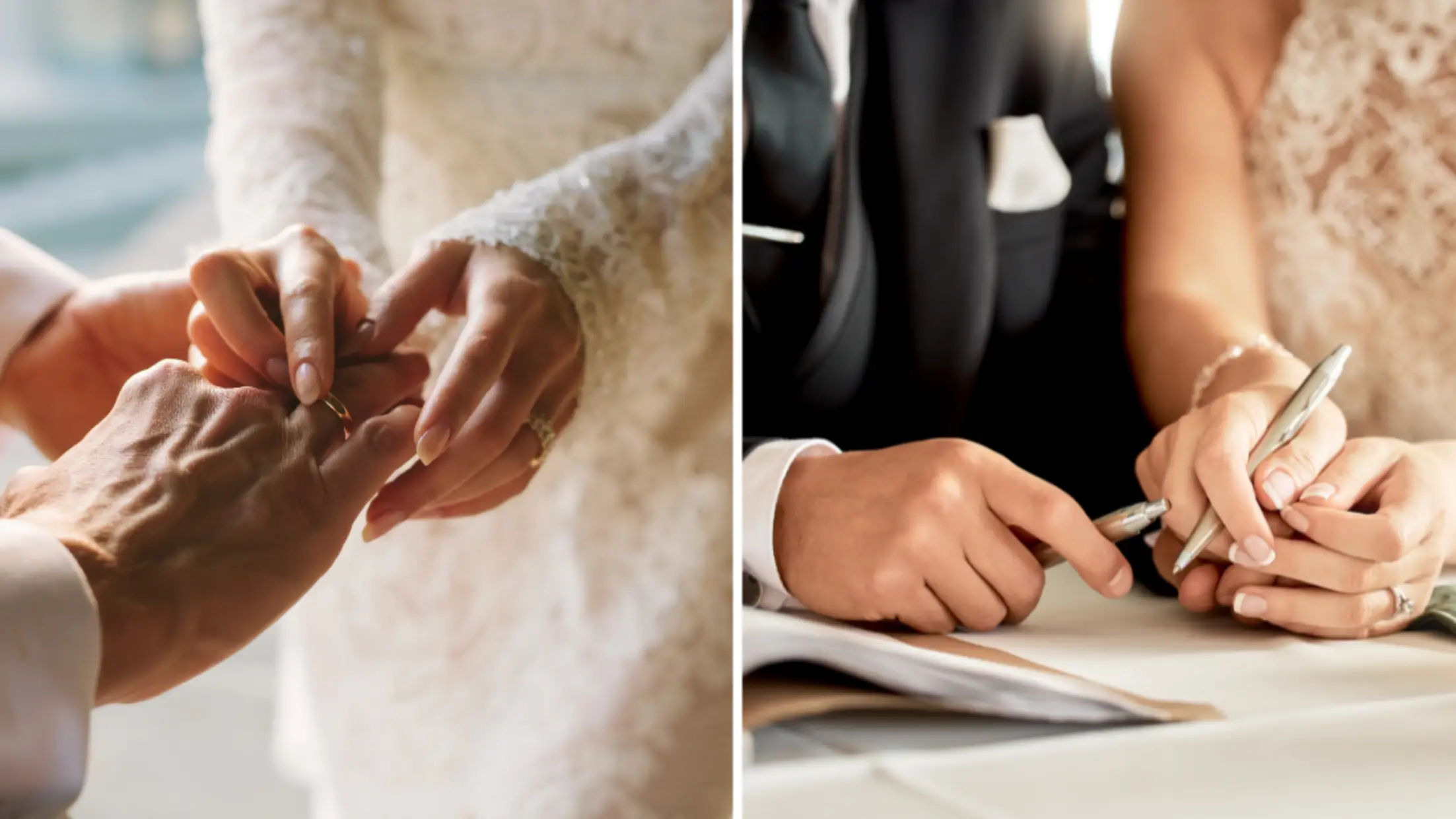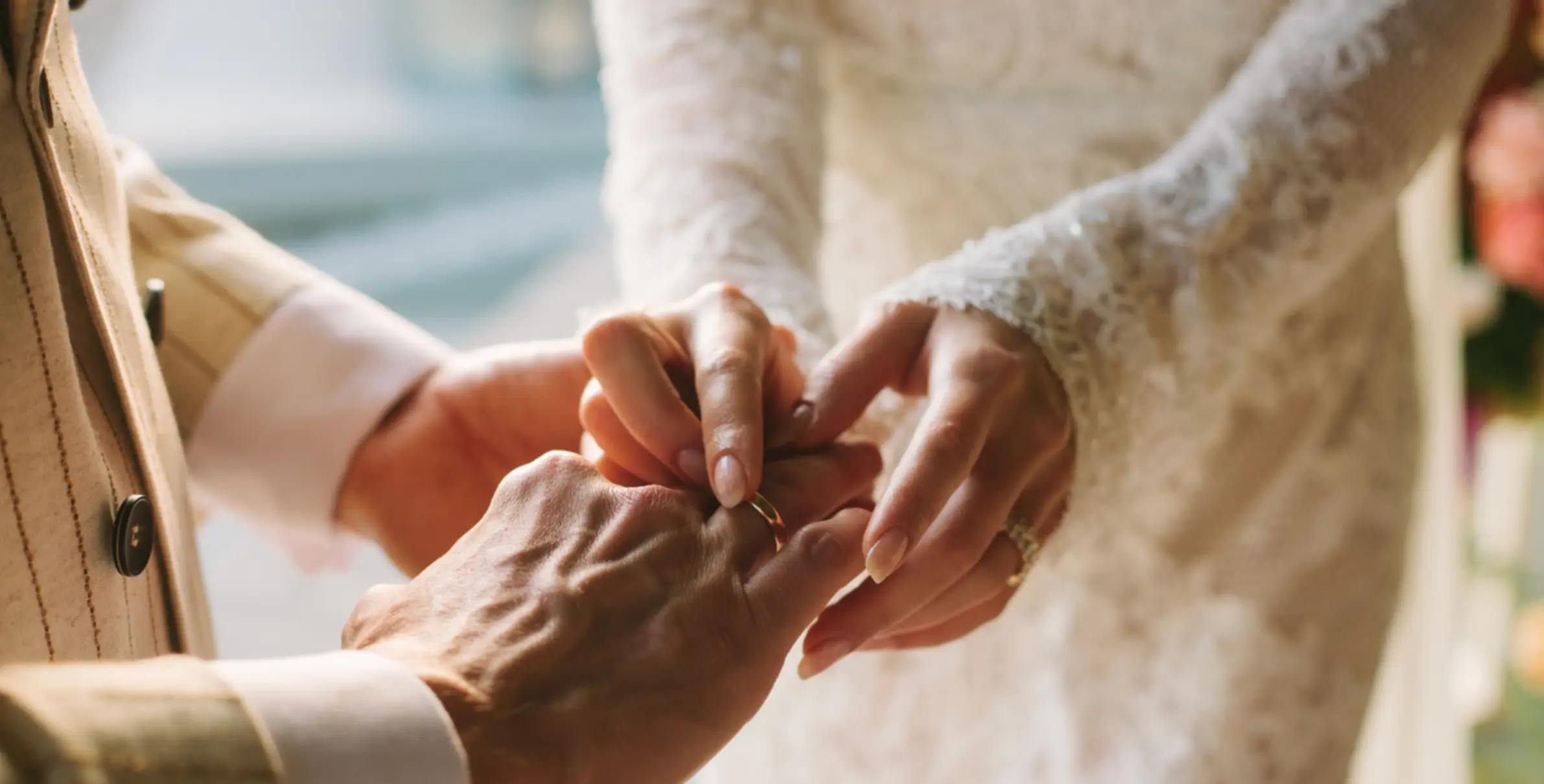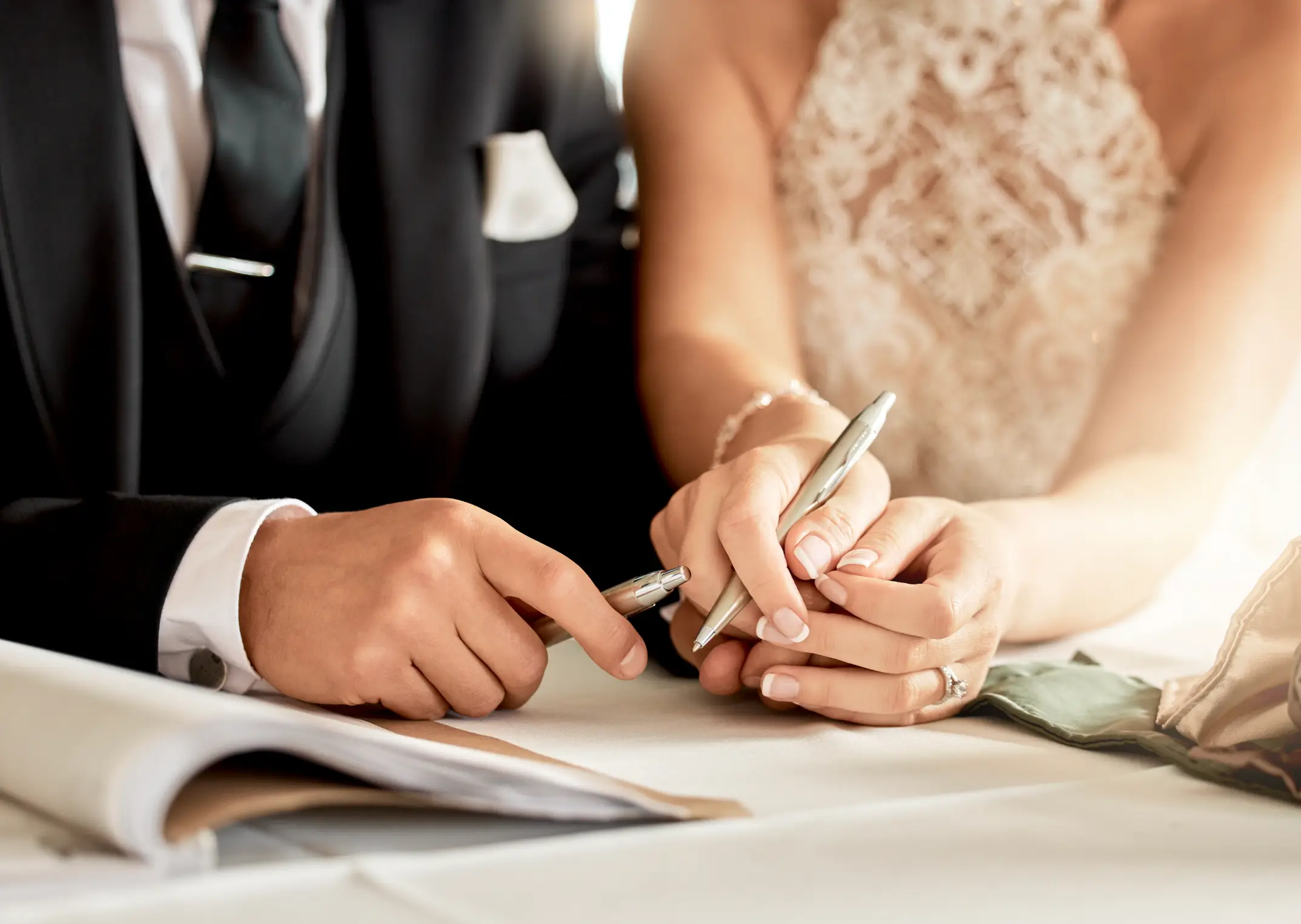
Getting married means the beautiful dress, choosing the venue, sorting the flowers, remembering to book caterers, bands, photographers - oh, and ultimately changing your last name.
But does it have to?
In China for example, it's uncommon for a woman to take her husband's last name, and, in fact, more common for her to keep her own.
However, for hundreds of years (since medieval times), women have taken on their spouse's surnames after marriage, but why did it start and why has it carried on for so long?
Advert
Brace yourself because I don't think you're going to like the answer.

The reason women took on the surnames of their future husbands is all down to legal practice, with a law known as 'coverture', which signalled ownership effectively meaning a woman was owned by her husband.
Historian Catherine Allgor explained to Brides.com: "Coverture is a legal formation that held that no female person had a legal identity.
"A female baby was covered by her father’s identity, and then, when she was married, by her husband’s."
Whilst you'd think this could be interpreted as cute, Allgor is clear that it's less about dreamy romance and more about legal ownership.
I said you weren't going to like it.
She added: "She becomes, and this is the phrase, ‘legally dead.’ So it’s not that women take the last names of their husbands, which is how we think of it—it’s that they become part of [the husband’s] body. She does not exist in law, only the husband does."
So, in simple terms, let's say you're Miss Smith and then when you married, you're no longer a 'Miss' and you essentially didn't exist in law. You were only known by your husband's identity, which seems pretty rubbish to me.
In fact, taking your husband's surname didn't just mean a change to your name and not being seen as your own person, it also used to mean less rights.
For many years women couldn't drive, couldn't take out a bank account or a credit card without their husband's consent - which seems madness now that rights are more equal than they were back then.
In fact, with such history and loss of rights linked to losing your surname in favour of your partner's, it's no wonder it's become more of a trend for women to keep their surname or even double barrel and retain part of it alongside their husband's.

In 2016, a survey found that 90% of British women still take their husband's last name. However, a 2023 survey by Hitched found that only 60% of newlyweds changed their names, and 7% of couples merged their names.
Celebrities are too setting the precedent that their maiden names are here to stay, including Selena Gomez who has made it clear she will be keeping her surname in the future.
She revealed in an interview: "We always make sure we're protecting what we have, but there's no rules. I want him to always be himself. I always want to be myself. I'm not changing my name no matter what."
She's not the only one either as Drew Barrymore, Heidi Klum, Jessica Alba, Chrissy Teigen and Oprah Winfrey all stood by their original surnames despite their marriages.
Topics: Life, Sex and Relationships, Wedding